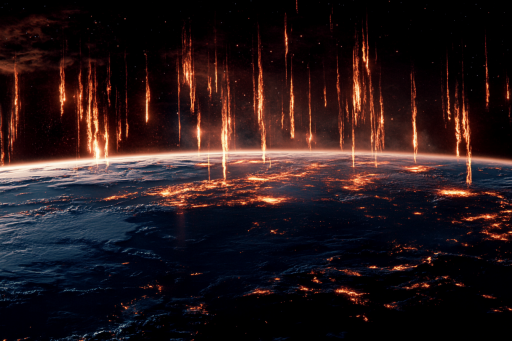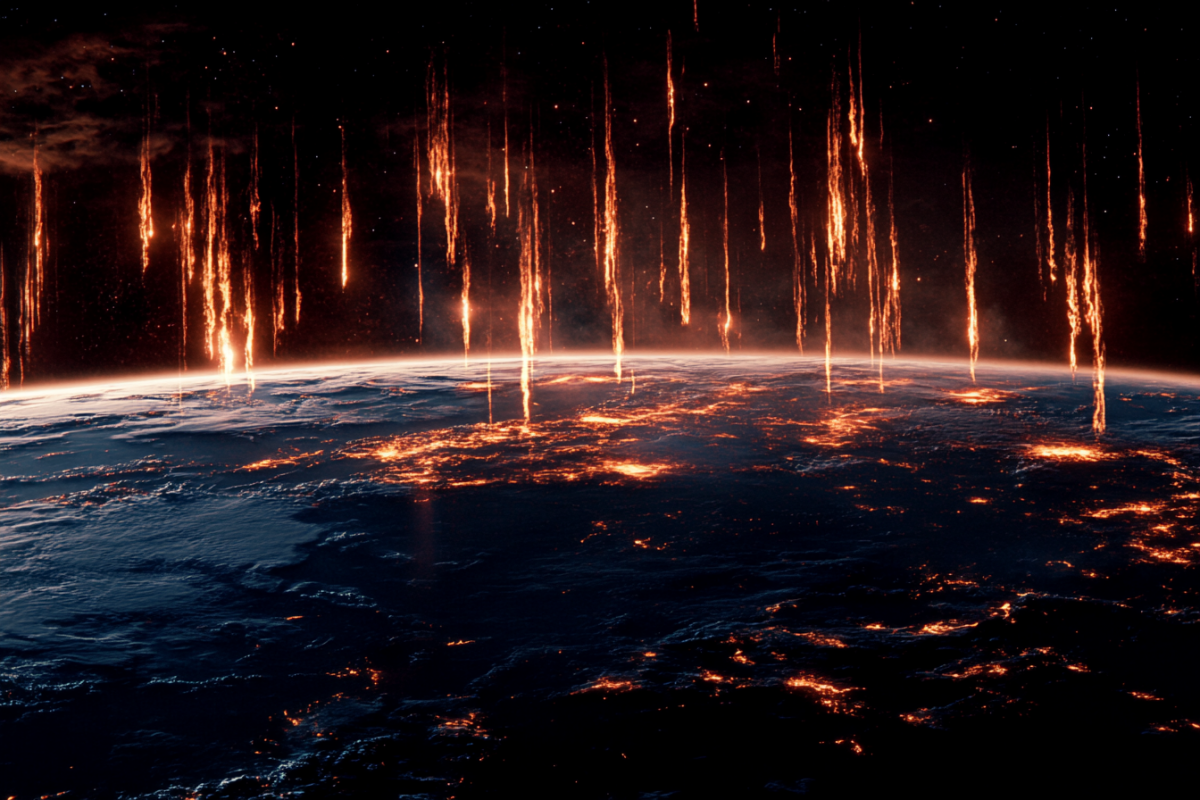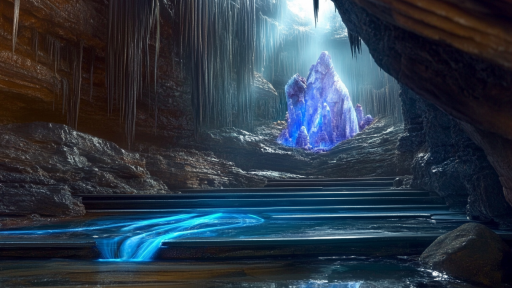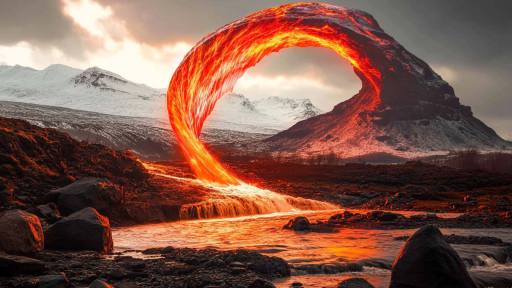
Meteor showers may seem like harmless celestial fireworks, but they carry unsettling secrets that few people know. From deadly impacts to eerie historical events, these cosmic visitors have played a mysterious and sometimes terrifying role in Earth’s history. Some meteor showers even have origins that hint at apocalyptic destruction or undiscovered forces in deep space. Here are some of the most unsettling facts about meteor showers that might change the way you see these dazzling celestial events.
Meteor Showers Are Fragments of Ancient Cosmic Disasters

Every meteor shower is caused by debris left behind from comets or asteroids that broke apart long ago. Some of these parent bodies were destroyed by massive cosmic collisions, meaning every streak of light you see is a fragment of an ancient catastrophe. The remnants of these long-lost celestial bodies continue to burn up in Earth’s atmosphere, centuries after their destruction.
Some Meteorites Contain Alien Organic Material

Scientists have discovered that some meteorites contain amino acids—the building blocks of life. This raises questions about whether meteor showers could have played a role in seeding life on Earth. The idea that life’s origins might be extraterrestrial adds an unsettling twist to every shooting star.
The Tunguska Event Was Linked to a Meteor Explosion

In 1908, a mysterious explosion flattened over 800 square miles of Siberian forest, and scientists believe a meteor was the culprit. The fireball, which exploded in the sky before impact, released energy equivalent to 1,000 Hiroshima bombs. If it had struck a populated area, the destruction would have been catastrophic.
Meteor Showers Have Been Mistaken for Signs of Doom

Throughout history, meteor showers have been interpreted as omens of war, disaster, or divine wrath. The Leonid meteor shower of 1833 was so intense that people believed the world was ending. Even today, some conspiracy theories link meteor showers to hidden cosmic threats.
The Atmosphere Doesn’t Always Protect Us

While most meteors burn up harmlessly in the atmosphere, some make it through and strike the ground. In 2013, a meteor exploded over Chelyabinsk, Russia, injuring over 1,500 people due to the shockwave. The event was a chilling reminder that Earth is not immune to cosmic impacts.
Some Meteorites Carry Mysterious Magnetic Anomalies

Certain meteorites have been found with strange magnetic properties that don’t match any known Earthly elements. Some scientists suspect that these fragments contain matter from deep space environments never before encountered. Their unusual composition raises questions about the unknown forces at play in the cosmos.
Meteor Showers Have Been Linked to Mass Extinctions

Some researchers believe that periodic meteor showers could be responsible for past mass extinctions on Earth. The theory suggests that clusters of incoming space debris could have triggered climate shifts or widespread destruction. If true, future meteor showers could still pose a significant threat to life on our planet.
Fireballs Can Cause Unexplained Sonic Booms

Occasionally, large meteors, known as fireballs, enter the atmosphere and create shockwaves that shake the ground. These mysterious booms can be heard for miles and have even shattered windows. The sudden nature of these events often leads to panic, as they arrive without warning.
A Meteor Once Struck a Sleeping Woman

In 1954, an Alabama woman became the first known person to be directly hit by a meteorite. The rock crashed through her roof, bounced off furniture, and struck her hip, leaving a severe bruise. The odds of such an event are astronomically low, but it proves that meteors can sometimes find their way to unsuspecting victims.
Some Meteor Showers Are Getting More Intense

Astronomers have noticed that certain meteor showers are increasing in intensity over time. This could be due to shifting debris trails or unknown gravitational influences. If this trend continues, Earth may see stronger meteor showers—or an increased risk of impacts.
Meteorites Contain Clues to the Origin of the Solar System

Some meteorites contain materials older than Earth itself, providing a snapshot of the early solar system. These cosmic time capsules hold secrets about how planets formed and what conditions were like billions of years ago. Studying them is like looking back in time to the very birth of our world.
There Could Be Undetected ‘Dark Meteors’

Scientists speculate that some space debris might be made of material that does not burn brightly in the atmosphere, making it nearly invisible. These “dark meteors” could be slipping through the sky undetected, possibly impacting remote areas without notice. The idea that silent meteors could be falling to Earth without us knowing is unsettling.
Meteor Showers May Have Destroyed Ancient Civilizations

Some historical accounts suggest that sudden firestorms, possibly caused by incoming meteor showers, wiped out entire ancient settlements. Archaeologists have uncovered layers of scorched earth in various locations, hinting at sudden and devastating impacts. If true, meteor showers may have played a larger role in shaping human history than previously thought.
The Sky Is Full of Unseen Dangers

Meteor showers may be beautiful to watch, but they are also reminders of the chaotic and unpredictable nature of space. The fragments of ancient worlds continue to fall, sometimes harmlessly, other times with devastating consequences. As Earth drifts through the cosmic debris field, one question lingers: what else is waiting in the darkness, unseen and unstoppable?





